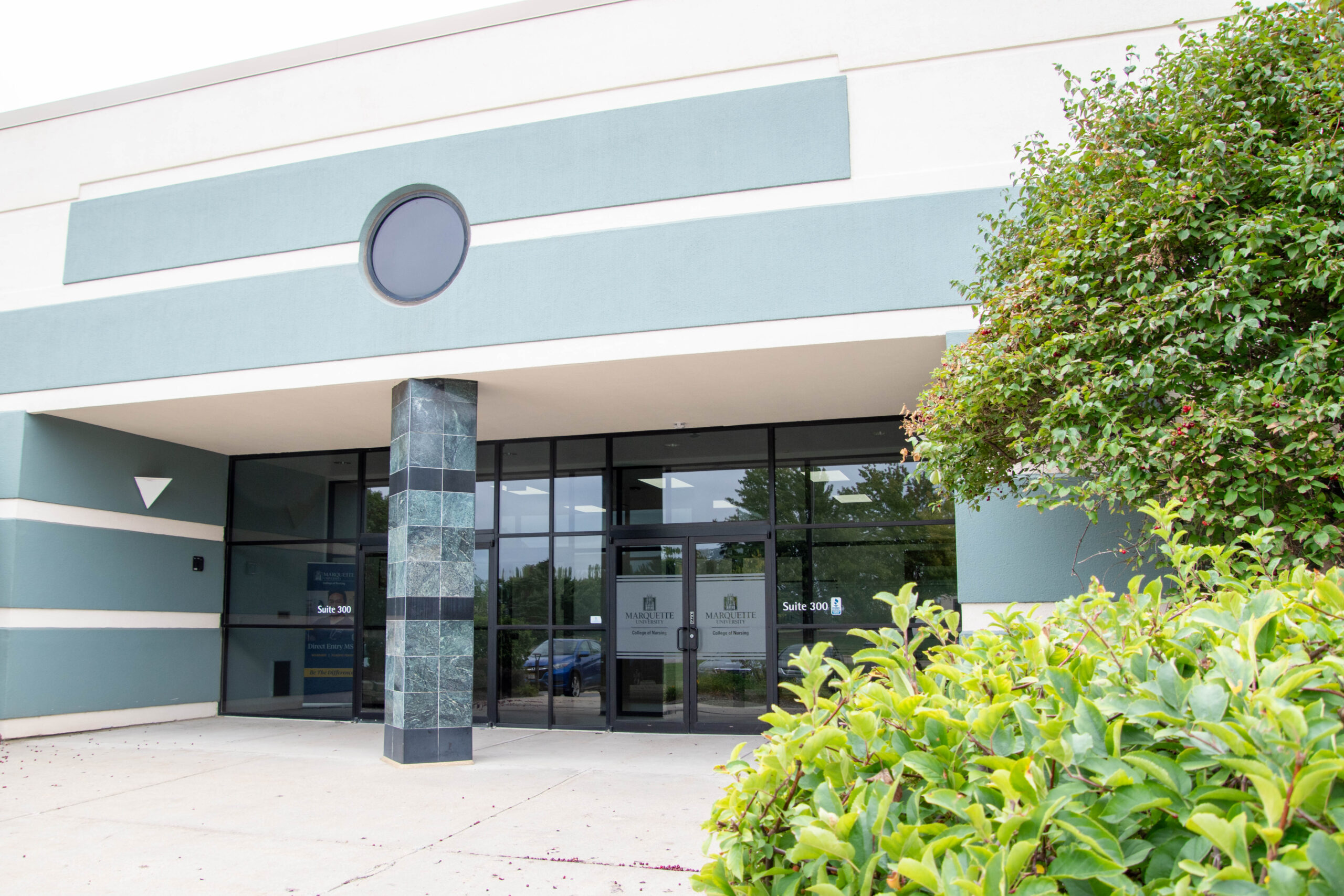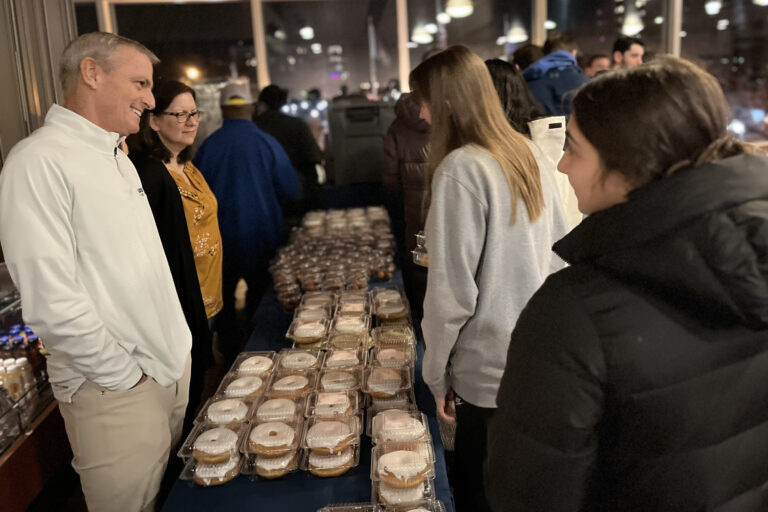Holly Nerone had class on Thursday, was in the hospital on Friday, delivered her baby via emergency C-section on Saturday and then was back in class the following Thursday night, just 24 hours after being discharged from the hospital.
“That was the first class of the semester and, at the time, the syllabus was handed out on paper,” Nerone says. “I couldn’t miss that.”
The memories of going through nursing school with children, of leaving the house before her firstborn son was awake and returning after he was asleep, informs her philosophy on graduate education.
“I would like to make this a kinder, gentler experience for anybody who has to go through something like that,” Nerone says.
Nerone is the incoming program director for the College of Nursing’s Direct Entry Master’s in Nursing option, a role she started in July after working at Cardinal Stritch University for more than six years. She will oversee over 200 students between Marquette’s Milwaukee campus and Pleasant Prairie site roughly 40 miles south of Milwaukee.
Although she has only been on the job for a few months, Nerone feels like Marquette’s diverse graduate student body is a great fit for her.
“We have a lot of students who I would personally categorize as nontraditional, and my dissertation work is on expanding access to pre-licensure nursing education to a broader range of candidates. This program has close alignment with my research interests,” Nerone says.
Some students in the graduate program are married with kids, just like Nerone was. Some are coming to the profession later in life. Many are moving from other places; a few even commute from out of state.
To best serve students with a wide range of learning preferences and life experiences, the DE MSN program provides a mix of learning modalities. The Pleasant Prairie program combines online and asynchronous courses, with clinicals at healthcare organizations, and exams, labs, and simulations done on-site, providing students an ideal mix of flexibility and access to resources.
“It’s important that we provide our Pleasant Prairie-based Marquette students with physical space to build community, not just with their cohort but with cohorts before and after them so they can really learn from each other,” says Dr. Karen Robinson, interim assistant dean of graduate studies in the College of Nursing.
That Pleasant Prairie campus expanded this summer with an across-the-street move to a newly renovated facility more than double the size of the program’s original space. The new location triples the capacity for fundamentals training, with more than a dozen new hospital beds in the skills lab. A larger simulation center boasts newly outfitted hospital and patient rooms, a simulated apartment for community care experiences, and high-tech, lifelike mannequins.
Marquette signage and color schemes adorn the walls, letting students know that even though their learning is not taking place at the main campus in Milwaukee, they’re still very much a part of the university.
Even in a partially remote program, designing physical spaces around students is a priority.
“We want students to feel a sense of belonging, and that is one of the things the new site will provide,” Robinson says. “This looks and feels like their Marquette home. I think that’s the key thing. It’s a space where faculty can come in and communicate with students.”
“I’ve talked to graduate students about whether they preferred to be online or in person and I think every student was consistent in saying that while they loved the convenience of distance learning, they wanted at least some face-to-face interaction with their professors and fellow students,” Nerone adds.
The new facility plays into Nerone’s skillset as a program director experienced in instructional design. At Cardinal Stritch, she served as chair of graduate nursing programs and, prior to that, program coordinator for their RN to BSN program. Those prior experiences helping diverse students achieve successful outcomes informed her choice to focus her academic research on servant leadership.
“The students in our program come from a wide array backgrounds and situations — all DE MSN students have completed a baccalaureate degree in something else and are now switching their focus to nursing,” Nerone says. “The program aims to strike a balance between program rigor and sensitivity to the students’ previous educational experience.”
More than 25 percent of all graduate students enrolled in the College of Nursing as of fall 2022, the most recent survey data available, were students of color. Over 38 percent of students at that same point were from outside Wisconsin. The ability to make students from multiple walks of life feel at home is essential to the success of any program, especially one where students are learning in a variety of formats.
This is a task that requires a facility and a program director laser-focused on serving students, and Pleasant Prairie has both.
“I went through nursing school as a nontraditional student, and I understand the challenges and sacrifices associated with tackling an extremely rigorous degree,” Nerone says. “I am committed to making sure our students have an exceptional and transformational educational experience on their journey to becoming Marquette nurses.”
While students are already learning in the new building, a formal grand opening is planned for Wednesday, Oct. 18.



